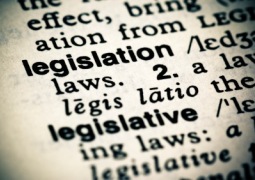
Lawyers, public transport operators and citizens taking part in the ongoing parliamentary public hearings on the Road Accident Benefit Scheme (Rabs) Bill have warned the Portfolio Committee on Transport about the potential risk of the “no-fault” clause in the bill, saying it might inadvertently encourage lawlessness on the roads.
The clause in the bill proposing that all road accident victims will have a right to equal compensation, without considering who is on the wrong, has been criticised, even from members of the public who said they supported the bill.
In its preamble, the bill says “the existing fault-based compensation system administered by the Road Accident Fund is not effectively achieving the purpose for which it was created. There is a need to expand and facilitate access to benefits by providing them on a no-fault basis.”
Gauteng attorney Mr Christopher Potinger, who attended the North West public hearings at Brits, referred to the no-fault basis as socially insensible. “I find the no-fault provision socially insensible, that no matter how wrong or how drunk a driver is, they are entitled to the same compensation as somebody who did nothing wrong,” he told the portfolio committee.
Taxi operator Mr Julius Ramaboea, who said he partially supported the Road Accident Benefit Scheme Bill, was also concerned about the no-fault provision, warning that it might result in lawlessness. “I am representing the taxi industry and we have a serious concern with the no-fault clause. We will have a serious problem on our roads [as] it might encourage lawlessness. This section of the bill needs to be highly interrogated, [although] we partially support the bill,” said Mr Ramaboea.
Ms Ayanda Mathabela of eMalahleni in Mpumalanga, told the committee that she would not support the draft legislation if it will “allow drunk drivers, people without drivers’ licenses and other wrong-doers to benefit from the road accident benefit scheme. If drunk drivers will be able to claim for compensation, does that not encourage lawlessness on the roads?” She asked the committee to consider amending the no-fault provision of the bill.
While some participants in the public hearings made suggestions to improve the Rabs bill, others suggested that there was no need for new legislation on road accident benefits, but rather to improve the existing laws.
Another lawyer, Mr Michael Brookes, said the no-fault clause works against the principle of natural justice, as we cannot compensate the wrong-doer in the same manner as the victim, who did nothing wrong. He also believes there is no need for a new bill and it would be preferable to amend the existing Road Accident Fund Act.
Committee Chairperson Ms Dikeledi Magadzi assured those attending the public hearings that this was just the beginning of a lengthy law-making process. “The bill will be incomplete without the input of the public. It will only become proper law after considering input from the public,” she said.
Sakhile Mokoena
26 July 2018

